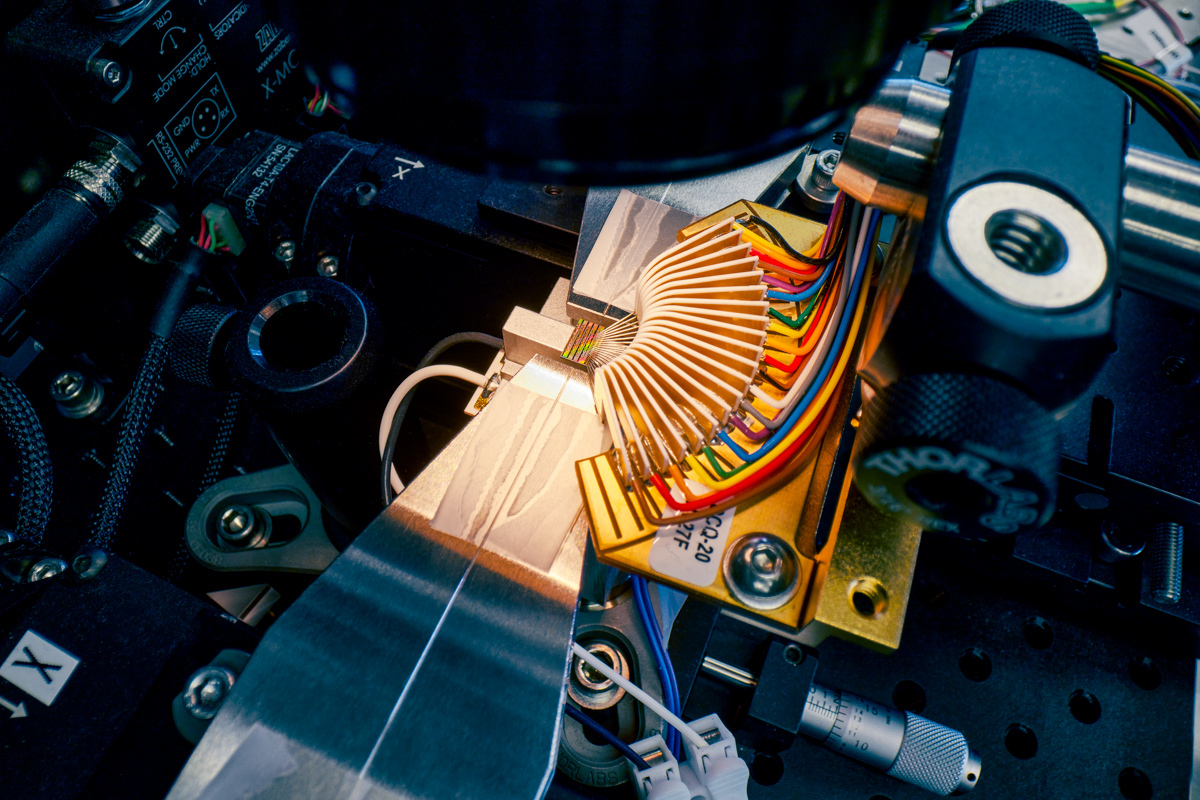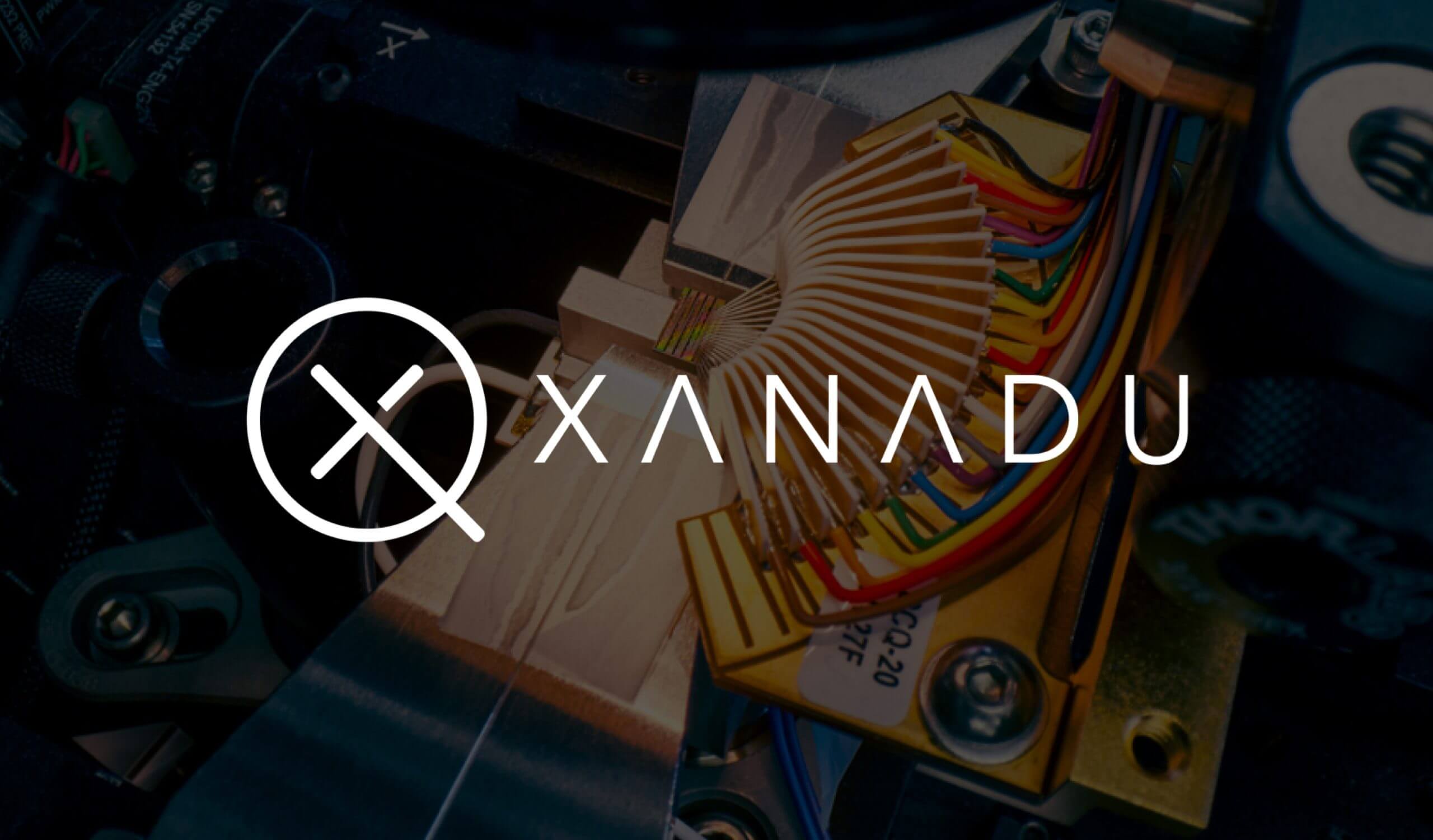The Canadian startup’s quantum hardware and software advances are impressive, but so is their unusual habit of sharing them with the public.
Quantum computers may sound like something out of Star Trek, but innovative startups like Toronto’s Xanadu Quantum Technologies are on a mission to develop them for real world use. The company, founded in 2016, is a global leader in quantum technology that has the potential to shake up the worlds of chemistry, machine learning, finance and beyond.
So, what exactly is a quantum computer anyway? “Quantum computing brings quantum physics to computing. Quantum computers are the next generation of supercomputers,” explains Christian Weedbrook, CEO and founder of Xanadu. “Instead of working on a binary system, like a classical computer, that calculates with transistors 0 or 1, a quantum computer calculates with quantum bits or qubits (can be 0 and 1 simultaneously). Computing power for certain applications increases exponentially as the number of qubits available increases.”
While quantum computers aren’t likely to replace classical computers, at least anytime soon, they are expected to significantly boost the speed at which we can solve large problems and supercharge the ways we can use artificial intelligence.

Christian Weedbrook, CEO & Founder, Xanadu
The many benefits of lasers
While quantum computers are still well off from being fully operational or reaching their full potential, progress is rapid. Xanadu has built quantum hardware, most notably their most recent quantum computer, Borealis, and also creates software to support it. Other companies and developers can access their quantum computers through Xanadu’s Cloud or directly on their own computers, then use Xanadu’s software tools, features, and simulators to build and deploy their own quantum applications.
In terms of hardware, one of Xanadu’s key differentiators is their use of photonics, meaning their quantum computers are powered by laser pulses. Weedbrook says this comes with advantages such as being scalable and modular: “Our quantum computers can stack in a traditional server rack, making it easy for a customer to add additional quantum computing power.”
Moreover, photonics allows their quantum chips to operate at room temperature, in contrast to many quantum chips that must be kept at cooler temperatures. Weedbrook says their chips are also more easily manufacturable because they’re made of mass-produced silicon and “are connected using the same fiber optics that the telecom industry already works with.”
Growing the quantum community
Xanadu’s open-source software, PennyLane, playfully named after a Beatles song, is a cross-platform Python library that allows developers to train quantum computers more easily and build their own quantum applications. A key part of Penn Lane is its community-led library of resources that Xanadu’s team curates into a go-to destination for tutorials, demonstrations, videos, and support forums.
“When we created PennyLane in 2018, we took inspiration from other fields that were slightly ahead of us on a similar path, like AI. There, we saw the tremendous value that open-source software played; it allowed the field as a whole to iterate and move forward faster than if things were kept secret behind walls,” says Weedbrook. “Creating open-source software also makes it easier to build an engaged community. Users can interact with each other, with the developers, and with the software much more directly, fostering a stronger bond and faster feedback loops.
In 2022, Xanadu announced the launch of a new quantum computer, named Borealis. It made headlines when it achieved quantum computational advantages, which, according to Weedbrook, means, “it outperforms the best classical supercomputers running the best-known algorithms on a well-defined task.” Rather than keeping it to themselves, they allowed for public access via Xanadu Cloud— a global first for a computer of its kind.

“Making our technology accessible not only builds trust within the community, but allows us to leverage the minds of the top researchers and contributors in the world”
“Although achieving quantum computational advantage does not mean that quantum computers have reached their full potential, quantum computational advantage level hardware brings the world closer to building the fault-tolerant noise-free quantum computers needed to help solve some of the world’s biggest challenges,” he says. “Making our technology accessible not only builds trust within the community, but also allows us to leverage the minds of the top researchers and contributors in the world, who will undoubtedly help propel the technology forward.”
Xanadu’s commitment to community goes beyond their products; the startup also hosts code camps and offers a residency program, which also has the benefit of training future talent in Canada and around the world. “The quantum field is expanding rapidly. It’s imperative that the next generation is highly skilled in quantum. Our programs and events, like QHack, are open to anyone and it’s been incredible to see people from around the world learn about quantum computing through our events and programs,” says Weedbrook.
Xanadu even has an online merch store, which sells a collection of graphic T’s and hoodies.

Christian Weedbrook, CEO & Founder, Xanadu with Justin Trudeau, Prime Minister of Canada
Canada as a quantum powerhouse
In early 2023, the Canadian federal government announced its long-awaited National Quantum Strategy, which aims to boost research, business growth, and talent development in the quickly-growing sector. “We’re incredibly fortunate to be headquartered in Canada, more specifically, Ontario. For decades, the Canadian Government has consistently invested in academic research on quantum computing and as a result of that investment Canada has several well-established, world-class research clusters in the field,” says Weedbrook.
As quantum computing grew closer to commercialization in recent years, the federal government has stepped up its support of startups like Xanadu. In January, Prime Minister Justin Trudeau visited Xanadu to announce $40 million in federal funding to help Xanadu create the first photonic-based fault-tolerant quantum computer.
For anyone who needs a translation, Weedbrook says, “Fault tolerance refers to a system’s ability to continue operating despite one or more components ceasing to function. For a quantum computer, being fault-tolerant is having the ability to perform quantum algorithms effectively despite these changes. We believe that fault tolerance and error correction are the keys to unlocking the full potential of quantum computers.”
This will be “very difficult as quantum information is extremely sensitive to loss and noise. We must isolate photons from noise to get reliable outputs,” but the potential rewards are large. For an example of real-world impact, Weedbrook points to electric vehicles: “Quantum computing has the potential to disrupt many industries, and the automotive sector is one of them. We believe that material simulation for electric vehicle EV battery performance will be one of the first use cases.”
Quantum computers’ potential to disrupt will only grow from there, says Weedbrook. “We’re on a mission to build quantum computers that are useful and available to people everywhere.”
To learn more about Xanadu, visit Xanadu.ai.
RBCx backs some of Canada’s most daring tech companies and idea generators. We turn our experience, networks, and capital into your competitive advantage to help drive lasting change. Speak with a RBCx Technology Advisor to learn more about how we can help your business grow.
